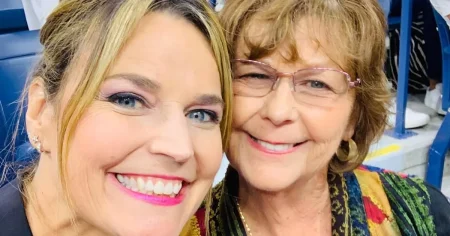Camilla Luddington’s Journey with Hashimoto’s: Finding Balance Amid Grey’s Anatomy
In a recent candid interview with People magazine, Grey’s Anatomy star Camilla Luddington opened up about her recent Hashimoto’s disease diagnosis and how she’s navigating this new health challenge while continuing her role as Dr. Jo Wilson on the long-running ABC medical drama. The 42-year-old actress, who first revealed her condition on costar Jessica Capshaw’s “Call It What It Is” podcast in August, described herself as being “fresh into this journey” after receiving her diagnosis at the beginning of summer. Hashimoto’s disease, as explained by medical experts, is an autoimmune disorder where the immune system mistakenly attacks the thyroid gland, leading to the death of hormone-producing cells. For Luddington, this manifested as persistent fatigue, inflammation, brain fog, and a general sense of being constantly exhausted despite adequate sleep. “Truly, when they said ‘autoimmune disease,’ I was really freaked out,” she admitted, though learning about its prevalence helped ease some of her initial anxiety. Before her diagnosis, she had suspected these symptoms might be related to perimenopause, but routine bloodwork revealed the underlying autoimmune condition that was dramatically affecting her daily life.
The journey to diagnosis wasn’t straightforward for Luddington, who described reaching a point where by 11 a.m. each day, she felt as though she “had chugged some Benadryl” and desperately needed a nap, regardless of how well she had slept the previous night. The constellation of symptoms that accompany Hashimoto’s—including fatigue, puffiness, brain fog, and depression—had significantly impacted her quality of life, making it difficult to stay present both at work and with her family. “It makes you feel tired and cold. It can make you foggy, depressed, you can have dry skin, your hair can thin,” she explained with characteristic humor, adding, “Basically, you’re feeling gorgeous with Hashimoto’s.” This profound exhaustion had prevented her from engaging in physical activities she once enjoyed, further contributing to her sense of disconnection from her usual self. The actress, who shares two children—8-year-old daughter Hayden and 5-year-old son Lucas Matthew—with her husband Matthew Alan, found herself struggling to maintain her energy for both her demanding career and her family life.
Since beginning treatment with Levothyroxine, a medication used to treat thyroid hormone deficiency, Luddington has experienced notable improvements in her overall health and well-being. “I feel like I have so much less inflammation,” she shared, noting that the persistent puffiness she had experienced has significantly decreased. Perhaps most importantly for the busy actress and mother, her energy levels have rebounded considerably. “I hadn’t seen a workout class in years, and I’m back at Barry’s bootcamp lifting weights,” she remarked, emphasizing how this return to physical activity has helped her reconnect with herself. The medication has also helped clear the brain fog that had been interfering with her ability to focus and be present. “Just literally being able to be present with whoever on set, with my family, is a huge difference,” she explained. While acknowledging that she’s “still not normal,” Luddington emphasized that she feels “a lot better” than before starting treatment, with improved energy and reduced inflammation.
The timing of Luddington’s health journey coincides with a particularly intense season of Grey’s Anatomy, where her character Dr. Jo Wilson faces life-threatening danger in the season 22 premiere. Without revealing spoilers, Luddington described the premiere as “bananas” and “traumatic for everyone involved,” referencing a gas tank explosion in an operating room at Grey Sloan Hospital that puts the entire staff at risk. The actress, who has been a beloved member of the Grey’s cast since season 9, continues to balance the demands of filming the high-intensity medical drama with managing her health condition. Her willingness to discuss her diagnosis publicly comes at a time when many celebrities are using their platforms to raise awareness about autoimmune disorders and other chronic health conditions, helping to reduce stigma and encourage others to seek proper medical care.
Hashimoto’s disease is one of the most common autoimmune disorders, particularly affecting women, yet many people remain undiagnosed or misdiagnose their symptoms as stress, depression, or normal aging. The condition, named after Japanese physician Hakaru Hashimoto who first described it in 1912, can develop gradually over years, making it difficult for many patients to recognize the pattern of symptoms until they become severe. By speaking openly about her experience, Luddington is helping to spotlight the often invisible nature of autoimmune conditions and the importance of comprehensive medical testing. While thyroid disorders like Hashimoto’s are generally manageable with proper medication and lifestyle adjustments, getting an accurate diagnosis is crucial—something Luddington emphasized in her discussions about the condition. Her experience underscores the importance of advocating for oneself in healthcare settings and pursuing answers when something feels wrong with one’s body.
As Luddington continues her dual journey of managing Hashimoto’s disease while filming Grey’s Anatomy (which airs Thursdays on ABC at 10 p.m. ET, with new episodes available the next day on Hulu), she represents the millions of people who balance chronic health conditions with demanding careers and family responsibilities. Her forthright approach to discussing her diagnosis and treatment reflects a broader cultural shift toward greater transparency about health challenges, particularly among public figures. For fans of Grey’s Anatomy, Luddington’s real-life medical journey adds another layer of appreciation for her portrayal of Dr. Jo Wilson, a character who has faced numerous challenges throughout her time on the show. As Luddington focuses on self-care and continues to adapt to life with Hashimoto’s, her story serves as a reminder of the importance of listening to one’s body and pursuing appropriate medical care—a message that resonates both on and off the fictional medical drama’s set.















